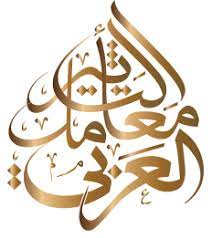A comparative study of the intangible aspects of music in the Maqamat al-Hariri and al-Saraqusti (a study of the Maqamat al-Basri and al-Tarifi)
DOI:
https://doi.org/10.36317/kaj/2021/v1.i48.493Keywords:
Moral music, Maqamat, Hariri, to ZaragozaAbstract
Undoubtedly, knowledge of the musical aspects of a literary work is important for understanding and analyzing it. We can point out that soft, required, and good music for a literary work is one of the important and influential elements in creating the beauty of a literary text. Music leads to exalted speech and has been associated with poetry and prose since the beginning. We can also claim that the first factor for the renaissance and revolution of words is what arouses human admiration, after music for words. The use of word music in poetry, high frequency, as well as artistic prose (maqamat) in Arabic literature, is considered as a prominent example of the musical aspects of words and expressions. The art of maqamat is very much concerned with the melody, rhythm and sound section, and this matter is due to the structure and the literary type of the maqamat, in which any line is full of good and creative melodies and rhythms. One of the important, applied and functional types of music is the intangible type of it. Just as the balances, harmony, regularities, similarities and counterpoints exist, the music of sounds is found through artifacts and verbal enhancements. As it has been referred to, its parts are a section of creative industries and philanthropies, including: antithesis, antithesis, observance of analogy, and others. Maqamat al-Hariri is an educational book written in fifty maqamat with artificiality and affectation. The writer carried out creative procedures with affectation and falsification, in each maqama and on the basis of the subject of the maqama, which was concerned with rhyming and alliteration of words and expressions a lot, and Hariri speaks in his maqamat about the inductive power of his prose language. As for Al-Sarqusti, he is one of the famous Andalusian maqamat writers, who made his maqamat fifty maqamat influenced by Al-Hariri, and considers music as an inseparable element. In this research, the researcher studied the Maqama "Al-Basriyya" from Al-Hariri and the "Maqama Al-Tarifiyya" from Al-Sarqusti in terms of clarifying the intangible manifestations of music.
Downloads
Downloads
Published
How to Cite
Issue
Section
License
Copyright (c) 2021 Musa Khorram zadeh, Mahmoud Abdanan Mehdi zadeh, Hassan Dadkhawa Tehrani

This work is licensed under a Creative Commons Attribution 4.0 International License.



















